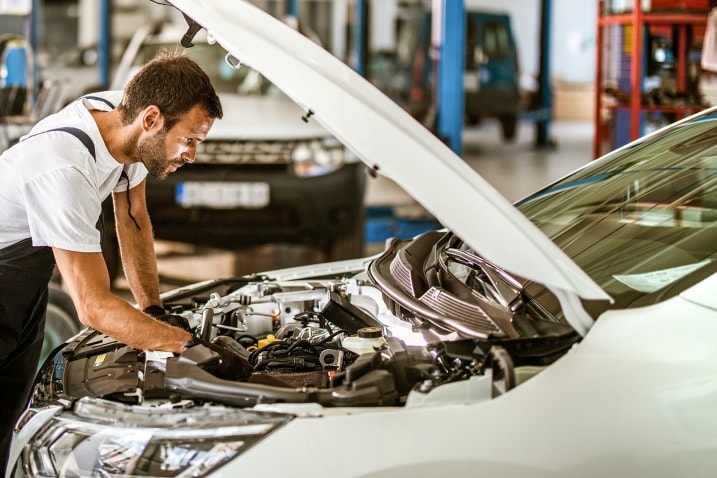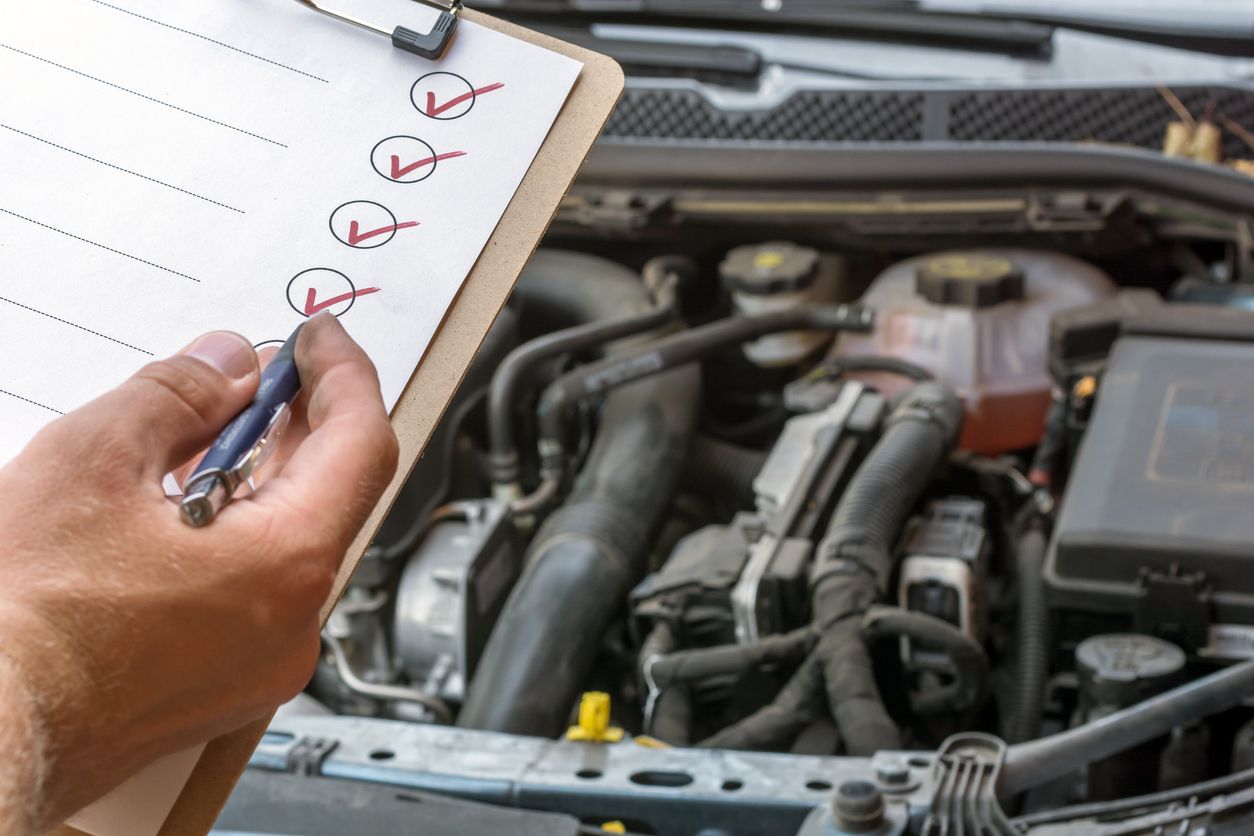All Categories
Featured
The transmission is one of the most vital elements in a car, accountable for moving power from the engine to the wheels. Whether your car has a automated or manual transmission, correct upkeep is important to guarantee it operates smoothly and successfully. Without routine treatment, transmission problems can result in unexpected malfunctions and costly repairs. Below's what you require to recognize concerning transmission repair work and maintenance to keep your automobile in leading shape.
Transmission have numerous parts such as the torque converter, planetary equipments, shutoff body, and clutch packs, all of which work with each other to transfer power. Manual transmissions, on the other hand, use a less complex collection of equipments and a clutch that the vehicle driver need to run. Both sorts of transmissions require routine maintenance to keep every little thing running efficiently.
Slipping Equipments: If your vehicle all of a sudden changes equipments, or if it battles to shift efficiently, the transmission could be sliding. This can be an indicator of reduced fluid degrees or internal wear. Unusual Noises: Grinding, whimpering, or clunking noises while driving or moving equipments could indicate a trouble with the transmission, such as worn-out parts or low fluid. Delayed or Rough Shifting: If the car waits or changes approximately between gears, it might indicate there's an issue with the transmission's control system or low liquid. Leaking Fluid: Transmission liquid is commonly bright red, and leaks can be an indicator that a seal or gasket requires replacement. Warning Lights: A transmission-related warning light on the dashboard typically indicates a breakdown. This can be activated by different problems, including liquid troubles or sensor breakdowns. 3. The Significance of Normal Transmission Upkeep. Routine upkeep is crucial to extending the life of your car's transmission and protecting against significant issues later on. Below are a couple of important maintenance tasks that must be done periodically:
Liquid Modifications: Transmission liquid functions as both a lube and a coolant for the transmission system. Gradually, the liquid can end up being polluted or damage down, leading to poor performance or damage. Regular fluid modifications are important to ensure that the transmission continues to operate efficiently. Liquid Degree Checks: Low transmission liquid levels can cause the transmission to get too hot and lead to substantial damage. It is essential to frequently inspect the fluid degrees and leading them off as required. Filter Replacements: The transmission filter helps maintain particles and contaminants out of the transmission liquid. Replacing the filter at normal intervals will certainly assist make sure proper liquid circulation and prevent unneeded endure the transmission. 4. Transmission Repair work vs. Substitute. When a transmission starts to fall short, the following action is usually making a decision in between a repair work and a full replacement. Minor concerns, such as a fluid leakage or a malfunctioning sensing unit, might only require a basic repair. However, if there is extreme damages to the transmission's interior components, such as the equipments or torque converter, a complete replacement may be essential.
![]()
Transmission substitutes can be pricey, yet they are in some cases much more economical than repairing a drastically damaged unit. A proficient auto mechanic will certainly have the ability to examine the circumstance and use the best strategy for your vehicle.
![]()
Look for a shop that utilizes sophisticated analysis equipment to determine concerns and has experience functioning with your car's make and version. A trusted shop will likewise offer a guarantee on their job, providing you assurance that any type of substitutes or repairs are covered.
While it might be tempting to delay transmission repairs to conserve cash, neglecting the issue can bring about more serious damages and higher repair expenses later on. It's always best to address transmission problems quickly to prevent considerable damage and pricey fixings.
Verdict. Transmission repair work and upkeep are essential to keeping your vehicle running smoothly and stopping significant problems. Regular fluid changes, examinations, and addressing warning signs early can help extend the life of your transmission and stay clear of expensive repair work.
- Recognizing the Transmission System. The transmission is basically the system that permits your car to move equipments, enabling it to move at numerous speeds. In an automated transmission, the vehicle changes gears immediately, whereas a manual transmission needs the motorist to shift gears by hand using the clutch and gear stick.
Transmission have numerous parts such as the torque converter, planetary equipments, shutoff body, and clutch packs, all of which work with each other to transfer power. Manual transmissions, on the other hand, use a less complex collection of equipments and a clutch that the vehicle driver need to run. Both sorts of transmissions require routine maintenance to keep every little thing running efficiently.
- Indications You Need Transmission Maintenance or Repair Works. There are a number of indicators that your vehicle might need transmission fixings or maintenance. If you notice any one of the complying with problems, it is necessary to get in touch with an expert technician immediately:
Slipping Equipments: If your vehicle all of a sudden changes equipments, or if it battles to shift efficiently, the transmission could be sliding. This can be an indicator of reduced fluid degrees or internal wear. Unusual Noises: Grinding, whimpering, or clunking noises while driving or moving equipments could indicate a trouble with the transmission, such as worn-out parts or low fluid. Delayed or Rough Shifting: If the car waits or changes approximately between gears, it might indicate there's an issue with the transmission's control system or low liquid. Leaking Fluid: Transmission liquid is commonly bright red, and leaks can be an indicator that a seal or gasket requires replacement. Warning Lights: A transmission-related warning light on the dashboard typically indicates a breakdown. This can be activated by different problems, including liquid troubles or sensor breakdowns. 3. The Significance of Normal Transmission Upkeep. Routine upkeep is crucial to extending the life of your car's transmission and protecting against significant issues later on. Below are a couple of important maintenance tasks that must be done periodically:
Liquid Modifications: Transmission liquid functions as both a lube and a coolant for the transmission system. Gradually, the liquid can end up being polluted or damage down, leading to poor performance or damage. Regular fluid modifications are important to ensure that the transmission continues to operate efficiently. Liquid Degree Checks: Low transmission liquid levels can cause the transmission to get too hot and lead to substantial damage. It is essential to frequently inspect the fluid degrees and leading them off as required. Filter Replacements: The transmission filter helps maintain particles and contaminants out of the transmission liquid. Replacing the filter at normal intervals will certainly assist make sure proper liquid circulation and prevent unneeded endure the transmission. 4. Transmission Repair work vs. Substitute. When a transmission starts to fall short, the following action is usually making a decision in between a repair work and a full replacement. Minor concerns, such as a fluid leakage or a malfunctioning sensing unit, might only require a basic repair. However, if there is extreme damages to the transmission's interior components, such as the equipments or torque converter, a complete replacement may be essential.

Transmission substitutes can be pricey, yet they are in some cases much more economical than repairing a drastically damaged unit. A proficient auto mechanic will certainly have the ability to examine the circumstance and use the best strategy for your vehicle.
- Picking the Right Mechanic for Transmission Service. Not all vehicle service center are equipped to take care of transmission repair work, particularly for contemporary vehicles with intricate transmissions. When picking a service center, it is necessary to pick one with professionals who concentrate on transmission diagnostics and repair work.

Look for a shop that utilizes sophisticated analysis equipment to determine concerns and has experience functioning with your car's make and version. A trusted shop will likewise offer a guarantee on their job, providing you assurance that any type of substitutes or repairs are covered.
- Expense of Transmission Services. The price of transmission repair services can differ extensively, depending on the kind of repair service required and the make and design of the lorry. Small repair work, such as taking care of a liquid leak or replacing a sensing unit, are generally extra budget-friendly. However, major fixings or a total transmission substitute can be expensive.
While it might be tempting to delay transmission repairs to conserve cash, neglecting the issue can bring about more serious damages and higher repair expenses later on. It's always best to address transmission problems quickly to prevent considerable damage and pricey fixings.
Verdict. Transmission repair work and upkeep are essential to keeping your vehicle running smoothly and stopping significant problems. Regular fluid changes, examinations, and addressing warning signs early can help extend the life of your transmission and stay clear of expensive repair work.
Latest Posts
Discover WyHy FCU – Key Tools for Your Future
Published en
1 min read
Why Chicago Drivers Pick Montclare Auto Repair for Trusted Service and Significant Savings
Published en
1 min read
Explore Your Financial Partner at WyHy – Top Benefits for Your Money Goals
Published en
1 min read
More
Latest Posts
Discover WyHy FCU – Key Tools for Your Future
Published May 26, 25
1 min read
Why Chicago Drivers Pick Montclare Auto Repair for Trusted Service and Significant Savings
Published May 21, 25
1 min read
Explore Your Financial Partner at WyHy – Top Benefits for Your Money Goals
Published May 21, 25
1 min read